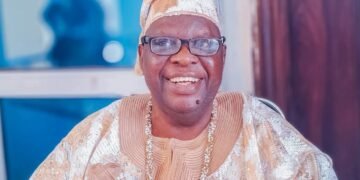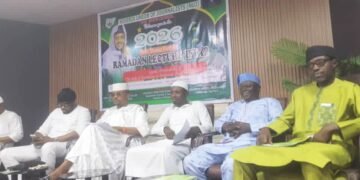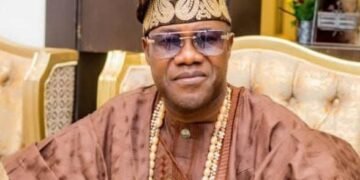“Those who will lead the future must understand China today”_Stephen A Schwarzman (Founding Trustee Schwarzman Scholars, Tsinghua University, Beijing)
Arguably, China over the years has become the hottest topic in international relations and discourses. This is not only because of its unprecedented economic development and the consequential emergence as a global power, but also according to the World Bank its miraculous elevation of more than 800 millions of its citizens from poverty. Learning from Chinese anti-poverty strategies and development model by the underdeveloped world including Nigeria has been dominating the debates especially since the turn of the new millennium. In 2022, the National Bureau of Statistics has disclosed that 133 million Nigerians are multi-dimensionally poor; out of which, an estimated population of 88.4 million people are said to be living in extreme poverty. With this staggering statistics, it is therefore not surprising that poverty remains the gravest hindrance to Nigerian development in the 21st Century. Several decades ago, one in five Chinese children below the age of five was underweight. Now it is one in 50. If China can do this, then Nigeria too can!.
The past four decades have been a critical period for Chinese people to seek harmonious scientific and sustainable development at national and international level to strengthen cooperation and embrace globalization with the world. In its quest to be part of globalization, China- Nigeria established diplomatic relations on February 10, 1971. As rightly observed by Lade Bandele, from this humble beginning, the relation between these two giants has grown over the years covering nearly all spheres of human endeavors. For example, the bilateral trade between the two countries has grown from about $300 million in the 1990s to over $26 billion in 2022. When the Forum on China-Africa Cooperation (FOCAC) a multilateral entity for coordination of Afro-Sino relations was established in October 2000, this relationship became strengthened.
Our investigation has revealed that, while Nigeria (and most African countries and the African Union) have been benefitting massively from the Chinese soft power diplomacy in forms of: humanitarian interventions (health, peace keeping, education etc); grants/interest free loans; gift of 200 million dollars AUs headquarters; massive Foreign Direct Investment among others; Only Rwanda, Ghana and Ethiopia are said to be interested in borrowing from purposeful leadership, responsible/responsive public and corporate governance; strict and effective war against corruption; deliberate/successful anti-poverty strategies and pro-poor policies/programs among others that are mainly responsible the current enviable global status that China has attained.
The fact that primary focus of most African leaders has been on the Chinese cheese and the increasing narratives and criticisms against the so-called Chinese neo-colonialism in Africa calls for a new appraisal of the real lessons that Africa is actually learning from her new romance with China.
Therefore, this piece is an open letter to the new government of President Bola Tinubu of Nigeria to take urgent and deliberate steps in revitalizing/redirecting the focus of relationship between Nigeria and China in order to derive maximum benefits towards poverty alleviation and positive economic turnaround learning from the Chinese experience.
What more can Nigeria gain from China?
There is no dearth of ideas when it comes to possible lessons accruable to Nigeria and other African Countries from the Sino-Afro relations in the drive towards development and the fight against poverty. For examples: Prof. Juma of Harvard Universitys Kennedy School of Government, Makhtar Diop, (World Bank Vice President for the Africa Region Beijing, China) Maria Ana Lugo, Martin Raiser, and Ruslan Yemtsov pointed to: economic transformation through industrialization, productivity, pro-poor growth/development, human capital development/education, health, agriculture, physical capital(infrastructure),savings and purposeful/assertive leadership as areas that Africa should focus in order to benefit maximally from her relationship with China.However, we must be reminded that who gets what especially in terms of benefits accruable to Nigeria/Africa towards positive economic turnaround and poverty alleviation depend mostly on the creativity and strategic thinking of the leaders. In case of Nigeria under President Tinubu: there are lessons for possible immediate action and ones for long term implementation.
Lessons for Possible immediate action by President Bola Tinubu
Beyond statistics, as a Nigerian currently residing in the country, I am a living witness to the fact that the cardinal economic policies of the current Federal Government of Nigeria (oil subsidy removal and the unification of the exchange rates especially the US dollar) are driving more people into poverty and making life, a living hell for the majority of Nigerians. As already quoted above ,out of about 200 million, about 133 million Nigerians are multi-dimensionally poor; out of which , an estimated population of 88.4 million people are said to be living in extreme poverty. Sadly, the number keep increasing and the current governments at all levels in Nigeria need new creative ideas to address the current all pervasive economic crises because the much touted palliative measures seemed to have failed woefully across the country. As a concerned Nigeria, I want to emphasise these lessons from China that could assist the FGN in short term:
The first suggestion for possible immediate action is for the FGN to halt or drastically reduce the dollarization of the Nigerian economy by shifting more towards this Asian giant by escalating the existing currency swap Deal with China and deliberately importing more from there. The Central Bank of Nigeria (CBN) says the bilateral currency swap agreement with the Peoples Bank of China (PBoC) will help the liquidity issues faced by Nigerian traders and Chinese manufacturers. Other benefits of the deal include: helping both Nigeria and China to manage their reserves better; assist both countries in their foreign exchange reserves management and enhance financial stability and promote broader economic cooperation between the two countries. Most importantly, China is reputed as the factory of the world and Nigeria as not only the largest market in Africa but also an import dependent economy. Meaning that, in the immediate term China has the capacity to supply nearly all the consuming needs of Nigeria.As at today Chinese Yuan to Naira is hovering at #105 official and #128 black market exchange rate while dollar is traded at around #757 official and 917 black market.
Therefore, Nigeria can take advantage the currency swap by deliberately shifting her importation drive to about 80 percent towards China. First, this will drastically reduce the current extreme pressure on Naira by the dollar leading to the current hyper inflation, assault on the purchasing power of average Nigerians (due to extremely high cost of living) and closure of some big and small industries (worsening already very bad rate of unemployment). Secondly, according to experts, it will be easier for most Nigerian manufacturers, especially small and medium enterprises (SMEs) and cottage industries in manufacturing and export businesses to import raw materials, spare-parts and simple machinery to undertake their businesses by taking advantage of the possible availability of RMB (Yuan) liquidity from Nigerian banks without being exposed to the difficulties of seeking other scarce foreign currencies (especially the US dollar). Since, China is also currently the biggest foreign creditor to Nigeria, it will be so strategic for the current Federal Government to further entrench economic/political relations as it could also offer the possibility of negotiating debt relief/forgiving with this Asian Giant.
There is also an urgent need for Nigeria to get China more deeply involved in her oil and gas sector. With about 32 functional oil refineries, China is said to be the world’s fifth-largest oil producer, only behind the US, Saudi Arabia, Russia and Canada. According to Mele Kyari, the managing director of the Nigerian National Petroleum Corporation Limited (NNPCL), currently,Chinese investments in the Nigerian oil sector have reached $16 billion (including the involvement in the building of Dangote refinery). I strongly believe that, in order to ameliorate the current extreme suffering of millions of Nigerians due to oil subsidy removal, President Tinubu also need to go into to a more strategic partnership with China in the area crude oil swapping for refined products. Others have also suggested alliance with other BRICS nations (Brasil,Russia and India) in this regard, but China remains the best option because of the technical know-how, urgency of the issues and the existing deeper economic camaraderie between the two giants. Most importantly, the existing currency swap deal between China and Nigeria will make it easier to conduct the oil swap business in Yuan which will make the importation oil far much cheaper. If NNPCL can involve the Independent Petroleum Marketers of Nigeria (IPMAN), this can translate to very cheap pump price of petrol in the shortest possible time which will drastically reduce the economic hardship that most Nigerians are currently facing.
Long term lessons accruable to Nigeria from China
Long term lessons accruable to Nigeria from China include: ones perilous past/history should not endanger the present or put the future in perpetual jeopardy, in order to drive development and defeat poverty, Nigeria must create the conditions to define it growth path, based on its history, culture and institutions; strongly linked with the above is the need to adopt the Chinese transformational leadership at all levels of governance in Nigeria from political terrain to public and private sectors, while it is impossible to replicate the Chinese experience in development drives and poverty reduction exactly in Nigeria but certainly it is possible for our leaders to learn and apply some of the Chinese ideas through strategic approaches based on African needs and reality; productivity conquers poverty by enhancing prosperity among any productive society, the lesson here is that Nigeria like China must engage in aggressive economic reforms that will lead to extreme productivity in order to defeat extreme poverty; there is also need for Nigerian leaders to develop an Afro-centric approach which will largely: enhance self-reliance and creative powers of the entire people and shift from the primary focus on Chinese aid to trade and investments between the two entities.
This should be done through a national framework guiding the Sino-Nigerian relations; mainstreaming of Chinese studies in our Universities and other relevant research institutes and deliberately dealings with some specialized Chinese agencies (such as, International Poverty Reduction Center in China (IPRCC), Office of Poverty Alleviation and Development, China Foundation For Poverty Alleviation, China Academy of Social Sciences and a host of others) in order to have first hand information and education about the Chinese models of development and anti-poverty strategies. This will greatly assist in integrating and pragmatic applications of these ideas in the day to day governance at all levels in the country. Nigeria as most countries in Africa is enmeshed in crises of nation building exemplified by grand corruption in high and low places and China offer great lessons on how to engage in ethical revolution by utilising culture as the strongest weapon for national consciousness, patriotism and national rebirth. This piece further argues that all pervasive grand corruption in Nigeria is one of the main reasons for the age long grinding poverty and underdevelopment in the country. The logic is very simple, no corrupt country has ever developed or fought poverty successfully. Therefore, if Nigeria will ever escape extreme poverty and experience meaningful development, corruption must be killed, before it killed us.
In conclusion, it is very apt here to refer to the immortal thought of late Obafemi Awolowo that the best way to achieve genuine peace and development in Nigeria is by successfully waging .the war against grinding poverty, hunger, preventable diseases, squalor, and ignorance among the masses of our people. with purposeful leadership, patriotism, and grim determination. And perhaps the best way to achieve this is by imbibing and practicing the critical lessons accruable to Nigerian leaders and citizens from their new found love with China. Certainly, China has been a positive influence on Nigerian economy (and other African economies), but one country alone cannot eliminate global poverty; only Nigerian government can play this role in Nigeria, not China. While Nigeria under President Bola Tinubu could use China as a model (in combination with existing models) for reducing poverty and achieve overall development; the FGN and the Federating units must continue to strive to create creative conditions for wealth generation and greater opportunities for Nigerians just as China is doing for the Chinese.
Dr Soji Oyeranmi is an Independent Researcher and a member of Chinese in Africa/Africans in China Research Network (CA/AC). He writes from Ibadan, Nigeria. Email: soji.oyeranmi@gmail.com













